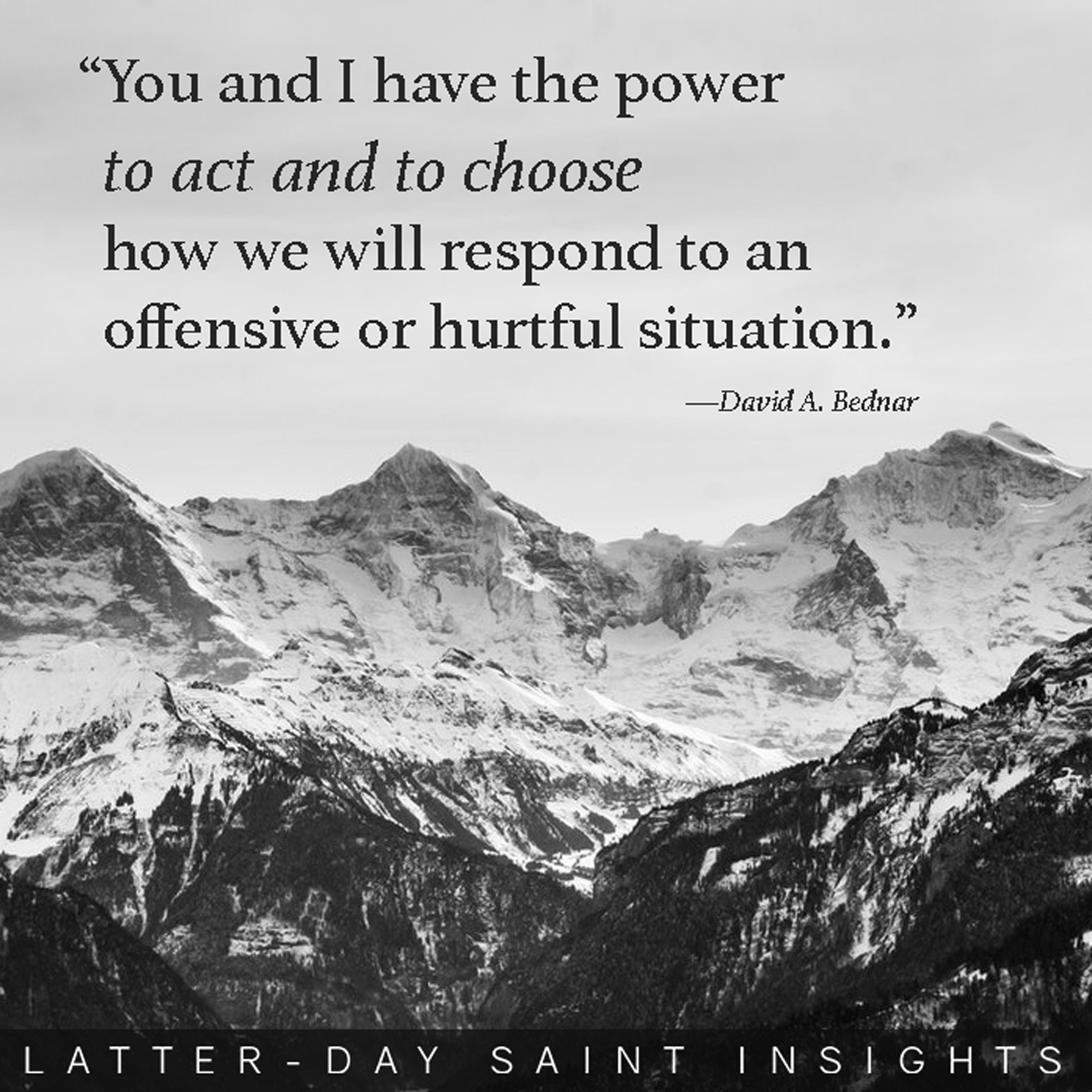Recognizing our divine traits allows us to shed offense and live a happier life.
Have you ever shared an opinion, only to have it ridiculed? Have you ever been betrayed by another person’s indiscreet or foolish behavior? If these things have ever happened to you, you’ve probably felt hurt or offended.

Image by Pixabay
Contemporary circumstances make it rather difficult to not be offended. Wickedness, thoughtlessness, and persecution exist all around us. However, Elder David A. Bednar teaches in his address “And Nothing Shall Offend Them” that “to be offended is a choice we make; it is not a condition inflicted or imposed upon us by someone or something else.”
Sometimes, choosing to not be offended is very difficult. It is, however, possible, and Christ makes it so. Elder Bednar continues, “You and I have the power to act and to choose how we will respond to an offensive or hurtful situation.” As we pray to the Lord and ask for his help, we can exercise and strengthen this power and recognize it as a gift.
In the coming days, the offenses issued by the world will only come more frequently. We may not choose our initial emotional reactions (such as anger or hurt) to these offenses, but we can choose our outward response. Praying for those that despitefully use or condemn us is a difficult step on the path to becoming more like Christ, but with his grace, it is possible. The peace that comes from letting go of offenses is worth more than any sense of justice we might otherwise have by holding onto our grudges.
Learn more about the nature of offense and forgiveness by reading Elder David A. Bednar’s talk “And Nothing Shall Offend Them.”
Source: General Conference
—Kyme Lambson, Latter-day Saint Insights
FEATURE IMAGE BY FABIANO RODRIGUEZ
Find more insights
Read more about becoming united under Christ in Elder Jeffrey R. Holland’s talk “The Greatest Possession.”


